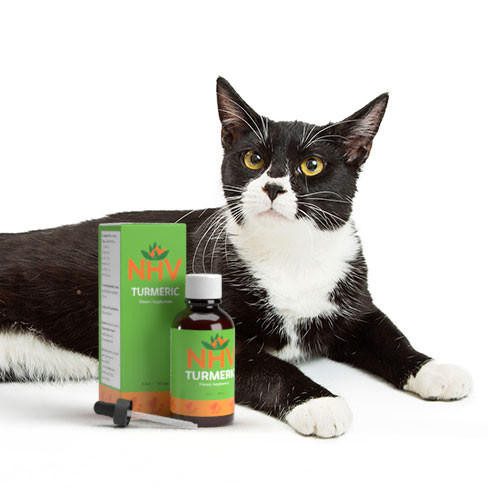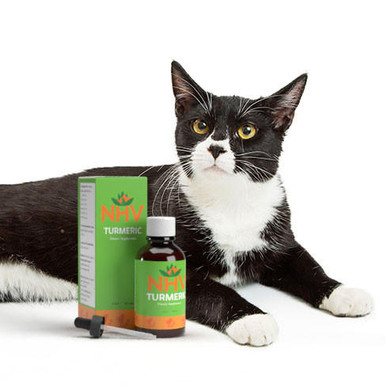kidney & bladder support

free shipping over $100 (USA & Canada)
1-877-937-4372 the pet expert hotline

Struvite stones in pets can indeed pose a significant concern for their urinary health. It’s vital to grasp the symptoms, causes, and effective management strategies to ensure our furry friends’ well-being.
Our beloved pets suffering from struvite stones may exhibit distressing symptoms such as frequent urination, blood in the urine, discomfort during urination, and even urinary blockages. These stones typically form due to a blend of factors including diet, urinary tract infections, and genetic predispositions.
Preventing the formation of struvite stones involves a holistic approach. Maintaining a balanced diet, ensuring adequate hydration, and promoting regular exercise are key. Additionally, reducing stress and providing a clean environment can significantly diminish the risk. When it comes to managing struvite stones, diet plays a pivotal role. It’s essential to feed your pet a diet that helps maintain proper pH levels in their urine, thus preventing the formation of struvite crystals.
Regular veterinary check-ups are paramount for monitoring your pet’s condition and ensuring timely intervention if any issues arise. These check-ups facilitate adjustments to treatment plans and early detection of potential complications.
Diagnosing struvite stones typically involves a thorough examination, urinalysis, and imaging techniques such as X-rays or ultrasound. Treatment options vary depending on the size and severity of the stones but may include dietary management, medication to dissolve the stones, or surgical removal in severe cases.
To support the management of struvite stones, consider incorporating specialized diets and supplements into your pet’s routine. NHV Tripsy is a natural supplement designed to support urinary tract health and prevent stone formation. NHV Turmeric boasts anti-inflammatory properties, aiding in reducing discomfort and inflammation associated with urinary issues. Milk Thistle, renowned for its liver-supporting properties, can be beneficial for pets undergoing long-term medication treatment. Additionally, consider the Bladder Stones and Urinary Crystals Kit, which provides a comprehensive set of supplements to support urinary health.
Understanding struvite stones in pets is fundamental for proactive management and ensuring the well-being of our furry companions. By implementing preventive measures, seeking timely veterinary care, and incorporating supportive products like NHV Tripsy, NHV Turmeric, and Milk Thistle into their routine, we can effectively alleviate discomfort and promote urinary health for our beloved pets.
kidney & bladder support

Tripsy & Milk Thistle
bundle and save with pet expert kits
3 month supply for a small to medium size pet.
Help relieve your pet of the horrible discomfort that comes from dog and cat urinary crystals and bladder stones with all-natural supplements formulated to ease symptoms and speed up your pet's recovery. This kit provides


Help relieve your pet of the horrible discomfort that comes from dog and cat urinary crystals and bladder stones with all-natural supplements formulated to ease symptoms and speed up your pet's recovery. This kit provides

Treatment of bladder stones in dogs and cats is needed to ensure kidney function. Stones are usually caused by an infection, but can also develop by metabolic abnormalities, like liver disease and high blood calcium levels, improper diet, or genetic conditions. Dog and cat urinary crystals can also form for similar reasons and can be quite common in pets. The combination of Tripsy and Milk Thistle will help flush stones, strengthen the liver, help relieve inflammation, and help promote urinary tract health, thereby aiding in bladder stone treatment in dogs and cats.
Tripsy provides urgent relief, including
And it’s suitable for long-term use.
The capsules are glycerin-based and safe for long-term use.
Tripsy
Milk Thistle
Select your pet's weight to determine the correct dose.
To be taken twice daily.
Determine your pet’s weight and then use the easy chart below to determine the correct dose. You can safely double the recommended dosage.
Pet's Weight Dosage
0 - 15 lb 0.5 mL
16 - 30 lb 1.0 mL
31 - 45 lb 1.5 mL
46 - 60 lb 2.0 mL
61 - 75 lb 2.5 mL
Over 75 lb 3.0 mL
For small animals (rabbits, ferrets), avians, and reptiles use one drop for every two pounds of body weight.
How to Administer
Shake well before use. The easiest method is to use the dropper provided and place the drops into your pet’s food or favorite treat. You can also use the dropper and squirt directly into the pet’s mouth. Some pets can be finicky. If this occurs consider hiding the drops in foods most pet’s love such as fish, chicken, yogurt, or a favorite treat. If your pet only eats dry food then soak a few kibbles at feeding time.
For Best Results
Herbal dietary supplements are beneficial to the health and well-being of your pet and are safe for long-term use. Every pet responds to natural herbal supplements differently, therefore it is important to be consistent and administer the product daily. Supplements generally take two to four weeks to take effect; however, this will vary from one animal to the next.
Product Storage
All NHV Natural Pet Products are pure herbal extracts and contain no artificial additives, preservatives or coloring. Shelf life after opening is six months and must be refrigerated after opening.
Treatment of bladder stones in dogs and cats is needed to ensure kidney function. Stones are usually caused by an infection, but can also develop by metabolic abnormalities, like liver disease and high blood calcium levels, improper diet, or genetic conditions. Dog and cat urinary crystals can also form for similar reasons and can be quite common in pets. The combination of Tripsy and Milk Thistle will help flush stones, strengthen the liver, help relieve inflammation, and help promote urinary tract health, thereby aiding in bladder stone treatment in dogs and cats.
Tripsy provides urgent relief, including
And it’s suitable for long-term use.
The capsules are glycerin-based and safe for long-term use.
Tripsy
Milk Thistle
Select your pet's weight to determine the correct dose.
To be taken twice daily.
Determine your pet’s weight and then use the easy chart below to determine the correct dose. You can safely double the recommended dosage.
Pet's Weight Dosage
0 - 15 lb 0.5 mL
16 - 30 lb 1.0 mL
31 - 45 lb 1.5 mL
46 - 60 lb 2.0 mL
61 - 75 lb 2.5 mL
Over 75 lb 3.0 mL
For small animals (rabbits, ferrets), avians, and reptiles use one drop for every two pounds of body weight.
How to Administer
Shake well before use. The easiest method is to use the dropper provided and place the drops into your pet’s food or favorite treat. You can also use the dropper and squirt directly into the pet’s mouth. Some pets can be finicky. If this occurs consider hiding the drops in foods most pet’s love such as fish, chicken, yogurt, or a favorite treat. If your pet only eats dry food then soak a few kibbles at feeding time.
For Best Results
Herbal dietary supplements are beneficial to the health and well-being of your pet and are safe for long-term use. Every pet responds to natural herbal supplements differently, therefore it is important to be consistent and administer the product daily. Supplements generally take two to four weeks to take effect; however, this will vary from one animal to the next.
Product Storage
All NHV Natural Pet Products are pure herbal extracts and contain no artificial additives, preservatives or coloring. Shelf life after opening is six months and must be refrigerated after opening.

Turmeric - A supper food that is beneficial for over all wellbeing

Turmeric - A supper food that is beneficial for over all wellbeing

Tripsy- helps support pets with urinary tract, kidney, and bladder problems.

Tripsy- helps support pets with urinary tract, kidney, and bladder problems.